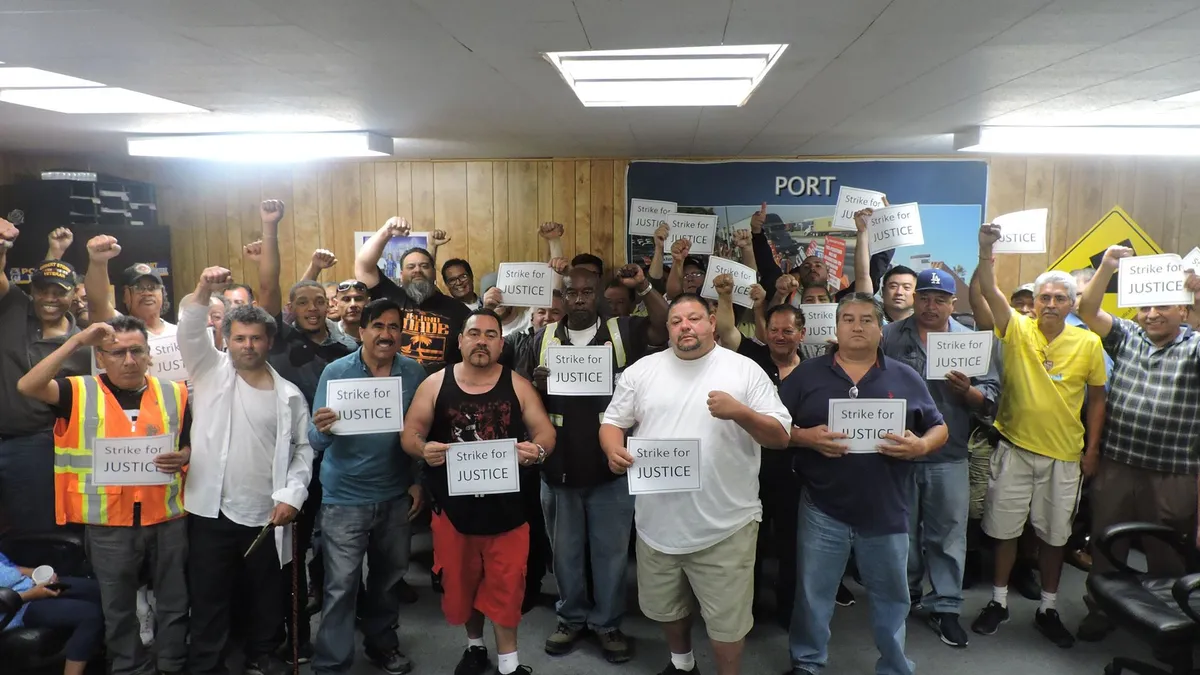Dive Brief:
- The threatened truck driver strikes at the Port of Los Angeles and Port of Long Beach are now underway, with roughly 60 picketers marching outside container terminals at the Port of LA, the Los Angeles Daily News reported Monday.
- Representing approximately 500 port drivers and supported by the International Brotherhood of Teamsters and Local 848, picketers are calling out port trucking companies like XPO Logistics and California Cartage for their habit of allegedly misclassifying drivers as independent contractors rather than employees.
- The protest regards the terms of independent drivers' work agreements, in which they're paid lower wages, miss out on social security contributions, and also worker’s compensation. The company for which the drivers work are also able to skirt worker protections like mandatory minimum wage and overtime, plus health and safety rules. Payroll taxes also go begging.
Dive Insight:
The current strike at the ports of LA and Long Beach is the 15th in four years, protesting "abusive" driver employment schemes. Although the ports said they did not expect the strike to disrupt their operations, the strike reflects a growing dissatisfaction with driver employers that may eventually boil over and result in a legal battle.
In short, drivers claim employers often force them into signing truck leases, or lose their jobs, and companies that work with these employers fail to do anything about it despite commitments to ethics and sustainability. A USA Today exposé recently explored these issues, revealing what they call a form of indentured service as truck drivers are left with little option but working to pay off high debts forced upon them. This, in turn, requires more work — often beyond the legal limits stated in Hours of Service regulations.
Whether or not the drivers' strike affects operations at the port, the demonstration shows how risks of modern slavery exist even in states like California, which have countless protections against such practices. That the drivers are demonstrating against the Port of LA's commitment to lowering emissions is a shout against being sustainable in one sense, and allowing labor malpractice in other.
The question, of course, is whether supply chain managers are responsible for auditing the labor practices of their trucking companies as well, and at what point working with such employers can be considered unethical.














